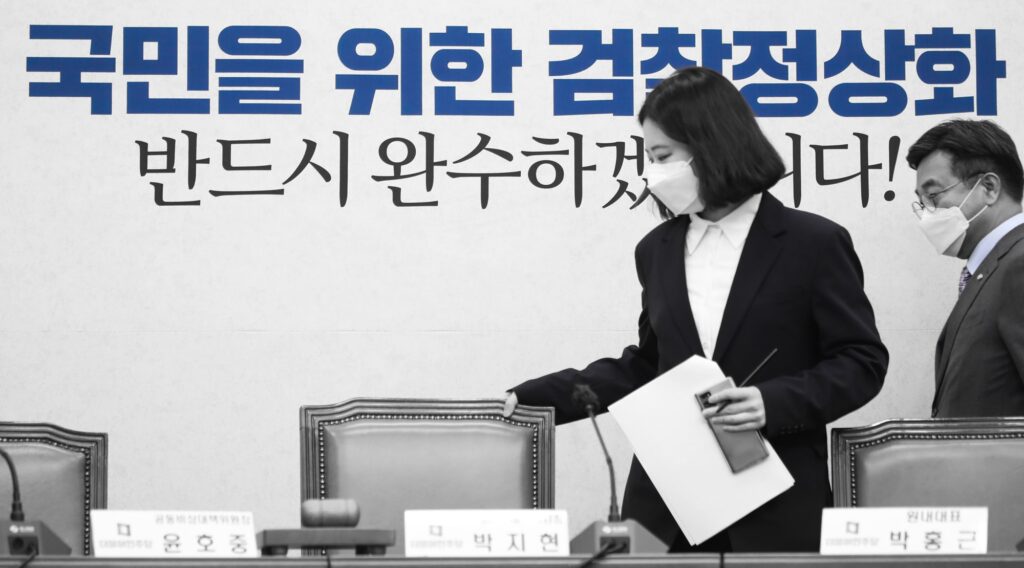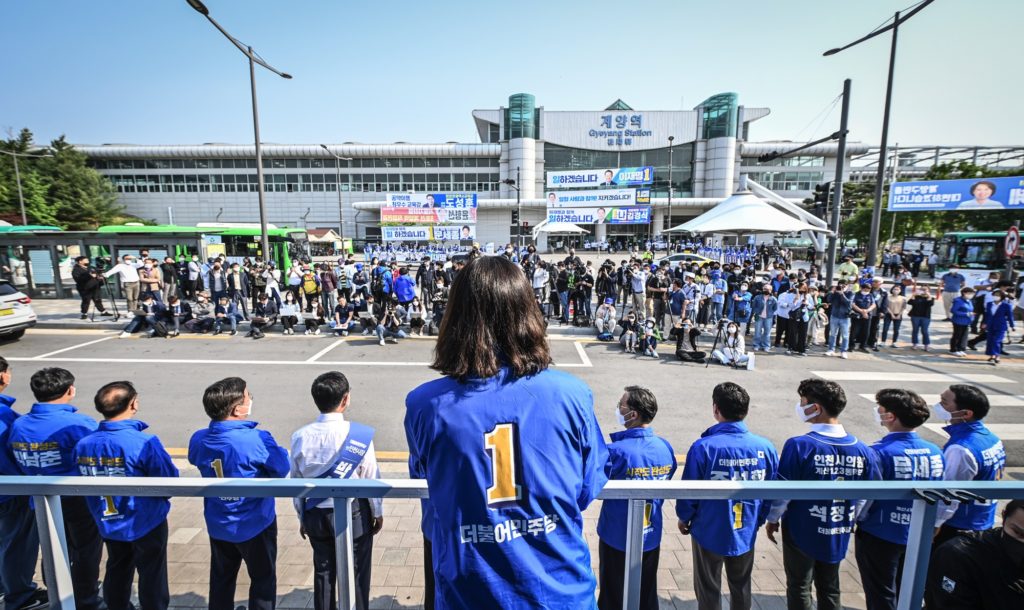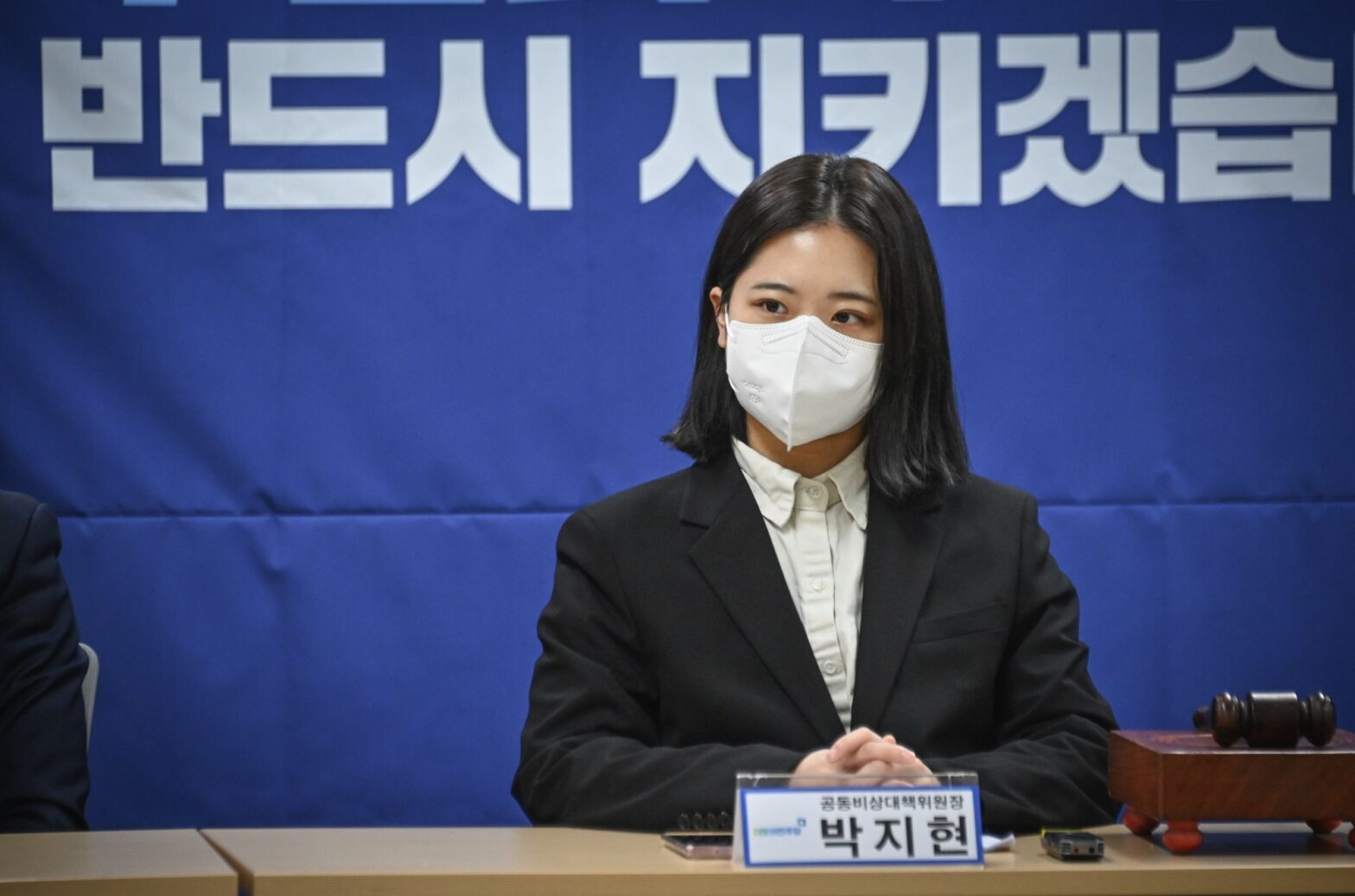Park Ji-hyun: the flame burning down
Bloomberg Equality’s profile on Park Ji-hyun is an excellent primer for those who didn’t know much about her.
NEW: “You might be reminded of AOC.”
This 26-year-old activist who busted an online sex crime ring in South Korea is now taking on the South Korean president — and its gender divide.
Read The Big Take ⬇️ https://t.co/ZOSlY7Nq7p— Bloomberg Equality (@BBGEquality) May 29, 2022
At the same time, the story’s timing would be an embarrassment for her, I’m afraid, since last week’s incidents showed her days in the party leadership might be numbered.
It would have looked much better if the story had come out at least two weeks ago. The story gives her a good shine, but in reality, the last week was the beginning of her political eclipse. (I can’t resist my urge to get back to the Thomas Mann quote.)
When the foreign press sheds light on South Korean politics, they tend to focus on a particular figure and a specific aspect of the society, often missing out on important contexts. I don’t blame them because their editorial decision relies on their target audience, those who don’t take a deep interest in South Korean politics.
Anyway, there has to be someone who gives out more contexts for those who want to understand deeper. So here I am at your service 😉
What happened last week?
- As her party trails the PPP in the run-up to the local election, Park made a grave speech last week, calling for changes including letting go of the 86 generation, which constitutes the majority of the party politicians.
- 86ers’ reaction: not good, of course. In fact, very bad.
Rep. Yun Ho-jung, a four-term lawmaker and the DPK’s other co-interim leader, stormed out of Wednesday’s meeting, saying that Park is “not qualified for the party leadership,” while Rep. Jeon Hae-cheol, a three-term lawmaker, also criticized Park, saying that she “needs to consult with the leadership before making such comments.” Both Yun and Jeon are big names of the 586 Generation.
Korea Times, DPK interim leader’s push for 586 Generation politicians to step aside meets resistance, May 26 2022
 ## What was she thinking? Is this about jarring factions within the party?
## What was she thinking? Is this about jarring factions within the party?
One way to frame the event is to see it as a fight between the Moon faction and the Lee Jae-myung faction for party hegemony.
Some media reports seem to subscribe to this view, but I don’t agree for several reasons: 1) Lee’s influence in the party is too thin to have a ‘faction’ of his own; 2) Even some Minjoo lawmakers who are considered to be pro-Lee criticized Park’s speech.
This has to be read as Park’s struggle to maintain her position in the party after the election.
Park made her political debut by joining Lee’s campaign at his request. Although she has little background in the party, he made it to the party leadership only because she’s been successful in garnering votes.
As it appears that the Minjoo is going to face defeat in the election tomorrow (the only question is how big the loss would be), she needs a plan after the defeat.
In a nutshell, she wants to take the initiative after the election.
Which isn’t going to be easy, as we’ve seen in the last week.
How big a help Park was to Minjoo?
In a word: enormous.
In a number: one pollster said he presumes her joining Lee’s campaign earned him about a 3-4%p increase in the support rate during the last presidential election. (Yoon won the election by 0.7%p if I have to remind you.)
During the presidential campaign, Yoon Seok-yeol and Lee Jun-seok made a big mistake of catering to anti-feminist sentiment, which, in effect, only aggravated young female voters’ disgust for the conservative.
While Lee and the Minjoo Party had no good track records in respecting female colleagues, Park’s joining at least gave an alternative to these voters.
 ## How will she fare after election?
## How will she fare after election?
Unfortunately, I’m pretty skeptical.
It looks obvious that she wants to lead a party reform after the election, as her Facebook post yesterday shows again, I don’t reckon that the 86-gen old guards will let her.
My favorite political researcher Cho Gwi-dong (you’ve often seen his name if you’re following my stories) pointed out that her appointment to the interim leadership is in part derived from an old student activist customary in which a cabal hires someone with a good image as frontman while the cabal exercises practically full authority.
But what if the frontman wants to be more than a frontman? Last week’s feud between Park and Yun Ho-jung, who had been one of the student activist leaders, would be a sign.
 Plus, Yoon and the PPP leadership are taking distance from anti-feminist sentiment, at least for now. Looks like they learned a lesson from the last election. Yoon even began to appoint more women to his cabinet.
Plus, Yoon and the PPP leadership are taking distance from anti-feminist sentiment, at least for now. Looks like they learned a lesson from the last election. Yoon even began to appoint more women to his cabinet.
Without the opponent going further to the anti-feminist side, the window of action for Park would be limited. She needs more variant ammunition in her belt, and probably this is why her no.1 reform agenda is the youth politics. Yet she hasn’t proved herself that way as her career in politics just started months ago.
Even the party supporters are turning against her. The hardline supporters, including the cults of Cho Kuk and Moon, demand her resign for causing feuds in the party, and even some of the Lee supporters are following suit. Some support Park indeed, but they appear to be only a tiny fraction.
So my view of Park’s future in the Minjoo Party is not optimistic. But I’m more than happy to be proven wrong because the politicians like Park are what this country needs more than anything else.
